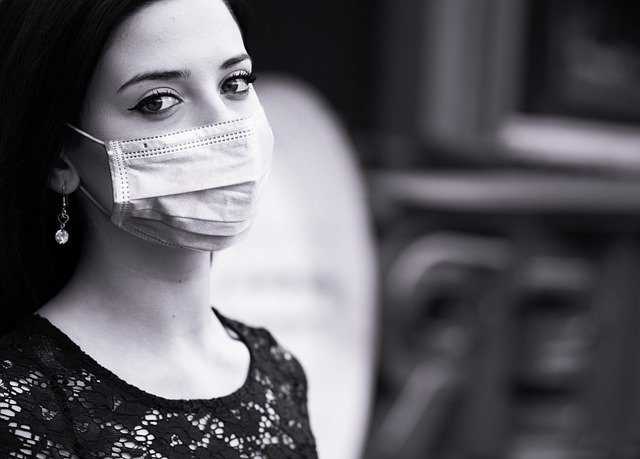by Dr. Sarah Dermody
It is hard to believe that it has been one year since the first COVID-19 lockdowns occurred in the US and Canada. Over the past year, many people’s daily routines have completely changed as they physically and socially-distance from others. While this distancing has been crucial to reduce COVID-19-related deaths, a question that scientists and practitioners have been facing is “Have there been harmful effects on alcohol use and related deaths?” Let’s look at the data together and see what’s the matter.
The Quarantini

Over the past year, many bars and restaurants have had to limit “drink-in” services. At the same time, many rules around alcohol sales and delivery have laxed (cocktail delivery – anyone?) and alcohol vendors have been deemed essential services.
It is not possible to know for sure if the pandemic has changed drinking. This is would require a study where we control people’s exposure to pandemic-like conditions and give them alcohol to see what happens (aka an experiment). What we do know, however, is that in some regions during certain periods of the pandemic there have been increases in the sale of alcohol. Of course, based on this alone, we do not know if people are drinking that extra alcohol they have purchased or if it is now part of a new pandemic trend of building a wine cellar.
We also know that people are telling us they are drinking more. In an online survey of 320 Canadian adults who drink, some individuals reported increased alcohol use when the pandemic started [1]. Some people reported greater increases in drinking than others, such as individuals who had children under the age of 18, had greater depression, or were less socially connected to others. An important question is why are certain people drinking more during the pandemic?
Tears in Your Beer
While alcohol use is often thought of as a social activity, how has social distancing and the pandemic affected people’s alcohol use?
The COVID-19 pandemic is a stressful ongoing event affecting the lives for many people. For quite some time, researchers have argued that feeling stressed, sad, or anxious can lead individuals to use substances (like alcohol) to cope with those unwanted feelings. Consistent with this idea, research supports that individuals who were more likely to report drinking alcohol to deal with negative emotions during the pandemic were most likely to increase their alcohol use.[1] Drinking to cope with negative emotions also was associated with experiencing consequences from drinking, such as being unhappy, getting in trouble, doing impulsive things, and harming relationships.
A Short-Term Solution that can create Longer-Term Problems
Attention has been drawn to recent increases in “deaths of despair” that include deaths from alcohol and other drug overdoses (as well as liver disease and suicide).[2] For instance, in Ontario, there was an increase in opioid-related deaths after the state of emergency was declared in March 2020 (see page 5 ). While there are many possible explanations for this increase, one possibility that has been put forward is that the sudden and then ongoing stress of the COVID-19 pandemic has led individuals to drink to cope and this can fuel an increase in drinking and potentially harms from drinking (such as overdose and alcohol-related liver disease).
As the COVID-19 pandemic continues to burden us with considerable stress and worry, alcohol serves as only short-term solution to a longer-term problem. As stated by Koob and colleagues (2020):
“Alcohol can temporarily dampen negative emotional states, providing short-term relief…Over time, [changes to the brain] reduce the relief that is provided by alcohol and increase emotional misery between episodes of [alcohol] use.”
In other words, alcohol may help relieve distress in the short-term, but in the longer term, it can make distress much worse.
Finding Other Ways to Cope

Given the potential physical, emotional, and financial costs of drinking, alternative ways of coping with COVID-19 related distress are needed. It is important to find options that will work for you and your current pandemic lifestyle. It may not be easy, but your mind and body may thank you later for finding alternative ways to relax and take a break.
Here are some options that you could try!
- Enjoy a different beverage: your favorite soda, a warm tea, or an indulgent hot chocolate
- Find another way to temporarily escape: have a bubble bath, listen to your favourite album, or watch a new show
- Develop new ways of coping: practice mindfulness, start a new exercise routine, go for a walk
- Reconnect with others: plan a virtual game night or simply catch-up with others by phone
Where can I find out more about reducing my drinking?
- Canada’s Low Risk Drinking Guidelines can help you determine limits for your drinking
- Access treatment via Access CAMH and ConnexOntario
- Consider a self-help program like “Saying When”
[1]Wardell, J. D., Kempe, T., Rapinda, K. K., Single, A., Bilevicius, E., Frohlich, J. R., … & Keough, M. T. (2020). Drinking to Cope During COVID‐19 Pandemic: The Role of External and Internal Factors in Coping Motive Pathways to Alcohol Use, Solitary Drinking, and Alcohol Problems. Alcoholism: Clinical and Experimental Research, 44(10), 2073-2083.

